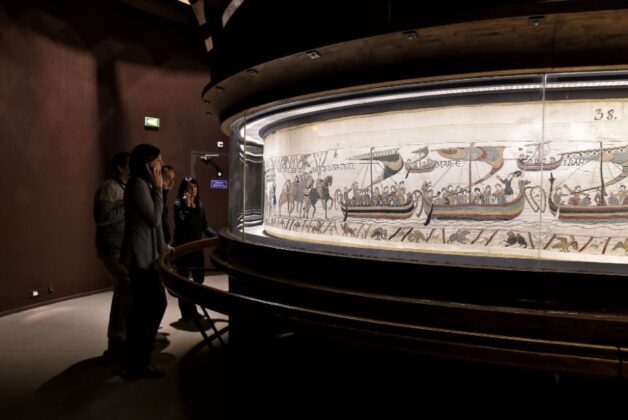Article: David Styles | Image: © Museum of London/Twitter
In the first week since the coronavirus outbreak that the pandemic hasn’t had sole custody of the headlines, several museums have taken the opportunity to advocate the work of those campaigning for Black Lives Matter.
Following on from the toppling of Edward Colston’s statue in Bristol at the weekend, a similar rendering of Robert Milligan has now been removed by Tower Hamlets Council – in line with London Mayor Sadiq Khan’s decision to conduct a review into all the city’s monuments with links to slave trading.
Tonight, we have removed the statue of slave trader Robert Milligan that previously stood at West India Quay. We have also announced a review into monuments and other sites in our borough to understand how we should represent the more troubling periods in our history. pic.twitter.com/Thfz3UHU96
— Tower Hamlets Council (@TowerHamletsNow) June 9, 2020
Museum of London Docklands, outside which Milligan’s statue was situated, says the sculpture had for a long time “stood uncomfortably” adjacent to a venue which, as a former sugar warehouse, is itself a “physical manifestation of slavery”.
The statue which was erected in West India Quay to celebrate Milligan’s “genius, perseverance and guardian care” was always at odds with the mission of the Museum, its statement via Twitter continues.
The statue of Robert Milligan has stood uncomfortably outside the Museum of London Docklands for a long time, one of only three museums in the UK to address the history of the transatlantic slave trade. (thread) pic.twitter.com/GNAbmU5aPv
— Museum of London (@MuseumofLondon) June 9, 2020
“We are committed to the processes of learning and unlearning as fostered in our London, Sugar & Slavery gallery, which opened in 2007 at the Museum of London Docklands. This gallery tells the history of the transatlantic slave trade and London’s involvement as once the fourth largest slaving port in the world.” This, the Museum notes, makes it one of just three UK sites to “address the history of the transatlantic slave trade”.
Museum of London supports the removal of statues such as that of Robert Milligan “on the grounds of its historical links to colonial violence and exploitation”. Such monuments are, it concludes, “part of the ongoing problematic regime of white-washing history, which disregards the pain of those who are still wrestling with the remnants of the crimes Milligan committed against humanity”.
Showing solidarity
Firstsite in Colchester has also entered the fray regarding the Black lives Matter movement.
The arts venue has collaborated with artist Elsa James, whose Black Girl Essex exhibition opened at Firstsite in June 2019, to create a poster which the public can download for free to show solidarity with the cause – in the same vein as the rainbows which so many people have displayed in their windows to support to key workers.

“We believe everyone should have equal access to, and experience the benefits of, art and creativity. But more than this, everyone should have equal rights and equal opportunities full stop,” a statement from Firstsite says.
“The continued violence, discrimination and oppression of black people across the world is abhorrent and is against everything Firstsite stands for. Black Lives Matter.”
James, who designed the poster aimed at fighting racism, inequality and discrimination, notes that in a week where the response from white communities has been “amazing”, “what would make black people everywhere feel more supported right now and going forward, would be to see the UK pledge that they will stand with us in this long ongoing fight against racism”.





